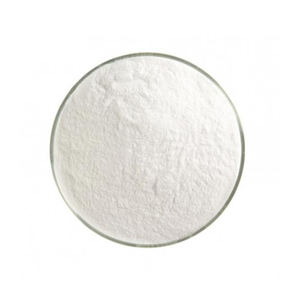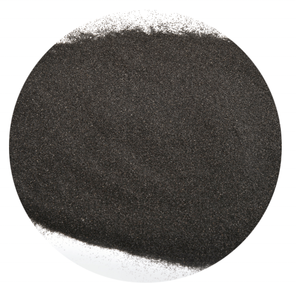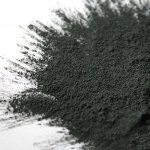Professional and high-quality metal alloys, ceramic products and concrete additives | RBOSCHCO
PRODUCT PARAMETERS
Description
Overview of Zirconium Carbide Nanoparticles Nano ZrC Powder
Zirconium Carbide Nanoparticles, likewise called Nano ZrC Powder, describe nanoscale bits made up of zirconium and carbon atoms prepared in a particular crystal framework. These bits show remarkable solidity, high thermal security, and chemical inertness, making them ideal for a vast array of applications. The little dimension of the nanoparticles provides one-of-a-kind physical and chemical buildings, improving their efficiency in locations such as abrasives, layers, and compounds. Nano ZrC Powder is a vital product in nanotechnology, using prospective benefits in locations where toughness, sturdiness, and resistance to severe problems are important.
Features of Zirconium Carbide Nanoparticles Nano ZrC Powder
Phenomenal Solidity: Zirconium carbide nanoparticles display considerably greater solidity than several various other products, making them appropriate for unpleasant and wear-resistant applications.
High Thermal Security: These nanoparticles can stand up to heats without considerable deterioration, ideal for high-temperature settings.
Chemical Inertness: ZrC nanoparticles are chemically secure, standing up to deterioration and oxidation in severe chemical atmospheres.
Nanoscale Features: The nanoscale dimension of ZrC fragments results in one-of-a-kind optical, digital, and mechanical residential or commercial properties, making them ideal for innovative products applications.
Superb Conductivity: Zirconium carbide nanoparticles have great electric conductivity, making them beneficial in digital gadgets and elements.
Customizability: ZrC nanoparticles can be customized to particular applications with managed synthesis, changing their dimension, form, and surface area homes.
Parameter table of Zirconium Carbide Nanoparticles Nano ZrC Powder
| Zirconium Carbide Properties | |
| Other Names | zirconium(IV) carbide, methylidynezirconium, ZrC powder |
| CAS No. | 12070-14-3 |
| Compound Formula | ZrC |
| Molecular Weight | 103.23 |
| Appearance | Gray Powder |
| Melting Point | 3532℃ |
| Boiling Point | 5100℃ |
| Density | 6.73 g/cm3 |
| Solubility in H2O | N/A |
| Exact Mass | 102.912529 |
| Zirconium Carbide Health & Safety Information | |
| Signal Word | Danger |
| Hazard Statements | H228-H302-H312-H332 |
| Hazard Codes | F, Xn |
| Risk Codes | 11-20/21/22 |
| Safety Statements | 16-27-33-36/37/39 |
| Transport Information | UN 3178 4.1/PG 2 |
Application of Zirconium Carbide Nanoparticles Nano ZrC Powder
Abrasive Products: Zirconium carbide nanoparticles are made use of in rough applications as a result of their firmness and use resistance, boosting the effectiveness and longevity of unpleasant devices.
Ceramic Coatings: These nanoparticles can be made use of to boost the residential properties of ceramic layers, enhancing their solidity, use resistance, and thermal security.
Steel Matrix Composites: ZrC nanoparticles can be integrated right into steel matrix compounds to enhance mechanical homes such as toughness, solidity, and put on resistance.
Solar battery: The optical and digital buildings of Zirconium carbide nanoparticles make them appealing prospects for usage in solar batteries and various other photovoltaic or pv applications.
Reducing Devices: The solidity and use resistance of ZrC nanoparticles make them appropriate for usage in reducing devices, enhancing their efficiency and longevity.
Biomedical Applications: Because of their biocompatibility and inertness, Zirconium carbide
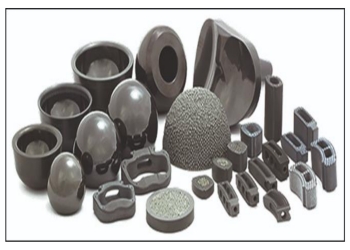
Application of Zirconium Carbide Nanoparticles Nano ZrC Powder

Application of Zirconium Carbide Nanoparticles Nano ZrC Powder

Application of Zirconium Carbide Nanoparticles Nano ZrC Powder
Production Method of Zirconium Carbide Nanoparticles Nano ZrC Powder
Carbothermal Reduction Method
Zirconium dioxide (ZrO2) and carbon sources like graphite are mixed in a certain proportion. The mixture is heated to 1400 – 1800°C in an inert atmosphere. The carbon reduces the zirconium dioxide to form zirconium carbide nanoparticles.
Chemical Vapor Deposition (CVD)
Gaseous reactants such as zirconium tetrachloride (ZrCl4) and hydrocarbon gases are introduced into a reaction chamber. At high temperatures of 1000 – 1300°C, chemical reactions occur on the surface of the substrate, depositing zirconium carbide nanoparticles.
Sol-Gel Method
Zirconium alkoxides and carbon-containing organic precursors are dissolved in a solvent. Through hydrolysis and condensation reactions, a gel is formed. The gel is then dried and calcined at 800 – 1200°C in an inert or reducing atmosphere to obtain nano ZrC powder.
Company Profile
RBOSCHCO is a trusted global chemical material supplier & manufacturer with over 12-year-experience in providing super high-quality chemicals and nanomaterials, including boride powder, nitride powder, graphite powder, sulfide powder, 3D printing powder, etc.
The company has a professional technical department and Quality Supervision Department, a well-equipped laboratory, and equipped with advanced testing equipment and after-sales customer service center.
If you are looking for high-quality Zirconium Carbide Nanoparticles Nano ZrC Powder , please feel free to contact us or click on the needed products to send an inquiry.

Storage Condition of Zirconium Carbide Nanoparticles Nano ZrC Powder
Zirconium carbide nanoparticles (nano ZrC powder) should be stored in a dry area with relative humidity below 40% to prevent hydrolysis and other reactions. They should be kept in airtight containers full of inert gas like argon or nitrogen to avoid oxidation by air. The storage temperature should be moderate, around 15 – 25°C. Also, store them away from strong acids, alkalis and other reactive substances to maintain their stability and properties.
Payment Term
L/C, T/T, Western Union, Paypal, Credit Card etc.

Shipment Term
By sea, by air, by express, as customers request.
5 FAQs of Zirconium Carbide Nanoparticles Nano ZrC Powder
Q1
What is the main difference between Zirconium Carbide Nanoparticles and other types of carbide nanoparticles?
Answer : Zirconium Carbide Nanoparticles differ from other types of carbide nanoparticles primarily in their composition and properties. Zirconium carbide, being a combination of zirconium and carbon, exhibits unique hardness, thermal stability, and chemical inertness compared to other carbides.
Q2
How are Zirconium Carbide Nanoparticles produced?
Answer : Zirconium Carbide Nanoparticles are typically produced through chemical routes such as carbothermal reduction or vapor-phase synthesis. These methods involve the reaction of zirconium precursors with carbon sources under controlled conditions to form the nanoparticles.
Q3
What are some key applications of Zirconium Carbide Nanoparticles in the industrial sector?
Answer : Zirconium Carbide Nanoparticles locate applications in numerous commercial fields, consisting of abrasives, finishes, steel matrix compounds, and reducing devices. Their firmness, put on resistance, and high-temperature security make them ideal for requiring applications.
Q4
How do Zirconium Carbide Nanoparticles affect the mechanical properties of materials when incorporated?
Answer :When Zirconium Carbide Nanoparticles are incorporated into materials, they can significantly enhance mechanical properties such as hardness, strength, and wear resistance. By incorporating nanoparticles, the strength and resilience of composite material are improved,which can withstand greater stresses and exhibit increased longevity.
Q5
Are there any environmental considerations or safety issues related to the use of Zirconium Carbide Nanoparticles?
Answer : While Zirconium Carbide Nanoparticles are generally considered chemically inert and stable, their use in certain applications may require consideration of environmental and safety aspects. For instance, during production and handling, appropriate safety measures should be taken to prevent inhalation or contact with the skin. In addition, proper waste management and disposal practices should be followed to minimize environmental impact.
REQUEST A QUOTE
RELATED PRODUCTS

Superfine Titanium Carbide Powder CAS 12070-08-5 Nano TiC Industrial Grade Material for Advanced Applications
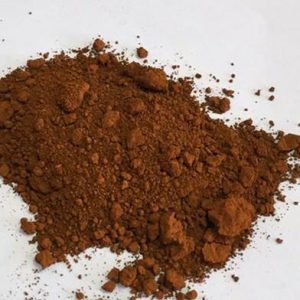
High Purity 99.9% Nano Copper powder CAS 7440-50-8 Nano Copper powder
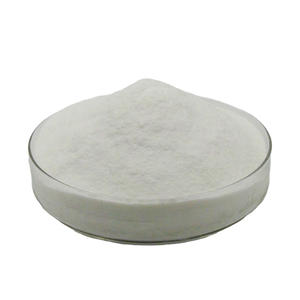
Heat Resistance, Cold Resistance, Corrosion Resistance, Wear Resistance Polytetrafluoroethylene Powder PTFE
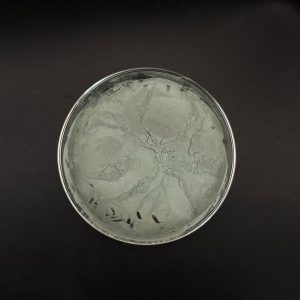
Factory Price Silicon Carbide Powder SiC Nanoparticles SiC Nanopowder

Titanium Nanoparticles Nano Ti Powder CAS 7440-32-6
